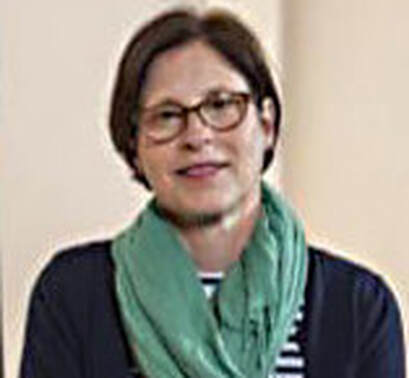If we are to educate our students to work in a world that is increasingly global and complex, faculty need to learn new pedagogies and stay current in our areas. Development isn’t just doing presentations and papers—it is acquiring new skills and experiencing new situations so that we can be more effective communicators and educators.
Universities rely increasingly on NTS faculty, and often NTS funding streams or departments do not allow for the professional development activities faculty need to stay on the cutting-edge. I have had excellent support from my Principal Investigator for professional activities. However, when I was awarded a core Fulbright Scholarship for research and teaching at the University of Porto, Portugal, that was not under my funding stream, I entered a new space in terms of institutional support. I suspect that I was the only NTS faculty in the University in recent years to have been awarded a Fulbright, and as such I fell through the cracks of institutional policies. Pitt wouldn’t recognize my time in Portugal as part of my work on behalf of the university, as it would have had I been tenure-stream faculty. In the end, I had to take an unpaid leave of absence without benefits. Rather than being rewarded for my achievement, I was disappointed and disillusioned. It would have been very helpful to have an advocate to help guide me through this process. A union could have been that advocate.
My Fulbright was a transformational experience, and I have come back to Pitt with new knowledge, contacts at four European schools, and an agreement to continue working with the University of Lisboa. Most importantly, my time there changed my view about my research and it has led to a much expanded view of human rights, treatment rights for children which is something that I will include in my research. Teaching in Portugal, Germany and Austria also broadened my perspective and made me a better instructor and researcher, thanks to the students who pushed me to think about my work in a different way. The experience led me to think more deeply about human rights, especially about the right to a home when you have left your family and your home behind in another country, a salient topic in the US today. Finally, this experience made me a better human being. I am humbler, kinder and more patient than before I had this wonderful opportunity. This has profoundly shaped my work with colleagues and students.
I think the university got a great return on a small investment in my development with this Fulbright, and I wish it had been recognized as such at the time. Through our unionization effort, I hope that professional development for NTS faculty will come to be treated as a real priority at the University of Pittsburgh.
--Mary Elizabeth Rauktis, Social Work
Universities rely increasingly on NTS faculty, and often NTS funding streams or departments do not allow for the professional development activities faculty need to stay on the cutting-edge. I have had excellent support from my Principal Investigator for professional activities. However, when I was awarded a core Fulbright Scholarship for research and teaching at the University of Porto, Portugal, that was not under my funding stream, I entered a new space in terms of institutional support. I suspect that I was the only NTS faculty in the University in recent years to have been awarded a Fulbright, and as such I fell through the cracks of institutional policies. Pitt wouldn’t recognize my time in Portugal as part of my work on behalf of the university, as it would have had I been tenure-stream faculty. In the end, I had to take an unpaid leave of absence without benefits. Rather than being rewarded for my achievement, I was disappointed and disillusioned. It would have been very helpful to have an advocate to help guide me through this process. A union could have been that advocate.
My Fulbright was a transformational experience, and I have come back to Pitt with new knowledge, contacts at four European schools, and an agreement to continue working with the University of Lisboa. Most importantly, my time there changed my view about my research and it has led to a much expanded view of human rights, treatment rights for children which is something that I will include in my research. Teaching in Portugal, Germany and Austria also broadened my perspective and made me a better instructor and researcher, thanks to the students who pushed me to think about my work in a different way. The experience led me to think more deeply about human rights, especially about the right to a home when you have left your family and your home behind in another country, a salient topic in the US today. Finally, this experience made me a better human being. I am humbler, kinder and more patient than before I had this wonderful opportunity. This has profoundly shaped my work with colleagues and students.
I think the university got a great return on a small investment in my development with this Fulbright, and I wish it had been recognized as such at the time. Through our unionization effort, I hope that professional development for NTS faculty will come to be treated as a real priority at the University of Pittsburgh.
--Mary Elizabeth Rauktis, Social Work


